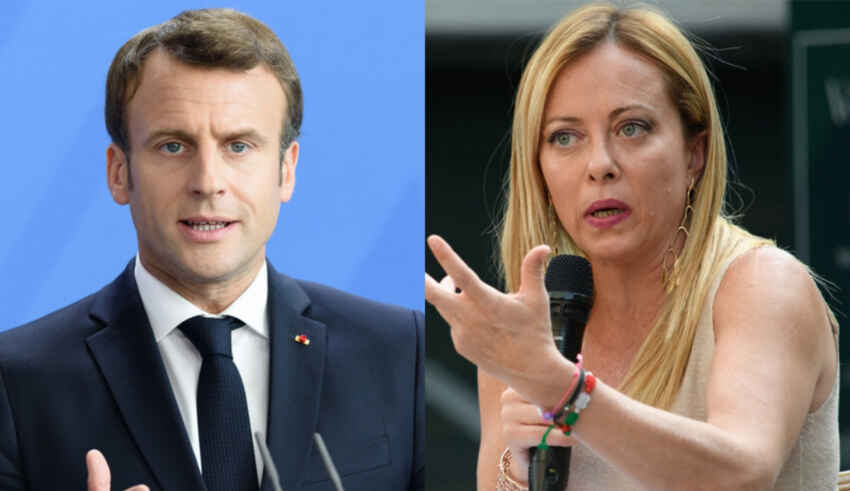
After the incident of last November, relations between France and Italy are tense and rocky. Migration and borders protection is a well-known issue between the two EU States, that from time to time brings to the surface diplomatic rows and tensions.
Going backwards and analysing the whole contexts it is important to underline the delicate situation between France and Italy along the Alps, where tens of migrants and asylum seekers try to cross borders, in order to reach the francophone territory, seriously risking their lives.
The deadly Italy-France border is, indeed, the scene where hundreds of people put themselves frequently in danger in search of the so-wanted “European freedom” and where most of the times their dreams are crushed by the French pushbacks.
However, on last November the “diplomatic crisis” occurred over the Mediterranean and not, as usual over the Alps. The refuse of Meloni’s government to give a safe port to the Ocean Viking rescue boat was the spark that started the fire between Rome and Paris. France eventually led the boat to dock at its nearest port, while Italy underestimated (or did not care about) French reaction.
France has claimed that there will be legal consequences, freezing the plan of last summer to redistribute more than 3000 asylum seekers from Italy and displaying 500 policemen over the borders.
Even though Macron and Meloni had several opportunities to meet, due to international summits between November and December, their relationship is still frozen, considering their back-and-forth via press and public declarations.
From EU perspective the migration issue and the “franco-Italian crisis” has been postponed to February 2023, while it remains still loud and clear that migration is been treated as a weapon to prove authority and supremacy.
On one hand there is European Law and the frustration of Mediterranean, specifically Italy, frequent refuse to observe the Dublin Regulation, while on the other hand there is the desire of prevailing and the demand of a wider redistribution of asylum seekers. In the middle there are always hundreds of human beings unheard, unknown, and most importantly unwanted.
Therefore, the real question would be, how much influence these more and more frequent incidents will have on the hold of EU principles and rights on asylum and human rights itself. Will migration keep being weaponized and identified more as “a problem to stop” rather than “a human phenomenon” to face? On the other hand, European Union has a huge responsibility in preventing and stopping violation of human rights, will it be up to the challenge? Will migration law and human rights survive to this constant attack from far-right positions?
It seems, in conclusion, that so far Macron and Meloni have ideas and opinions quite at the opposite and, to repair this row, it will be necessary something more than the diplomatic appeal of the President of the Italian Republic, Sergio Mattarella.
By The European Institute for International Law and International Relations.















